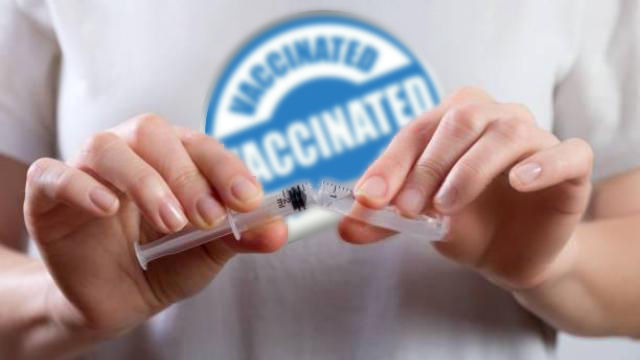Canada launches phase-2 clinical trial of groundbreaking inhaled COVID-19 vaccine
- WatchOut News

- Jul 31, 2025
- 2 min read
Canada has officially entered the next stage in the fight against COVID-19 with a phase-2 clinical trial of a next-generation, inhaled vaccine designed to deliver stronger, needle-free protection against the virus.

Backed by $8 million in funding from the Canadian Institutes of Health Research (CIHR), the landmark AeroVax Study will test a first-of-its-kind inhaled vaccine aimed at stopping SARS-CoV-2 at its entry point — the lungs and upper airways.
This multi-center trial is being led by Dr. Fiona Smaill and Dr. Zhou Xing, renowned infectious disease experts at the Michael G. DeGroote Institute for Infectious Disease Research (IIDR) at McMaster University.
Why an inhaled vaccine?
Unlike traditional needle-based vaccines, McMaster’s innovative inhaled approach trains the immune system where it’s needed most — in the respiratory tract, the virus’s primary gateway. Early data from pre-clinical work and an upcoming phase-1 study publication show the inhaled vaccine may deliver a more powerful and targeted immune response than conventional injections.
“While current COVID-19 vaccines have saved countless lives by preventing severe illness and hospitalization, many people still experience repeated infections,” explains Dr. Smaill. “Our goal is to change that — by building stronger protection right at the site of infection.”
A 100% Canadian innovation
From concept to clinical testing, this vaccine is proudly Canadian. It was designed and manufactured at McMaster’s Robert E. Fitzhenry Vector Laboratory, with trials conducted entirely in Canada by Canadian experts and participants at research sites across Hamilton, Ottawa, and Halifax.
Who can participate?
The study aims to enroll 350 adult volunteers. To qualify, participants must:
Be between 18 and 65 years old
Have received at least three doses of an mRNA COVID-19 vaccine
Never have received the AstraZeneca vaccine
Not have had a COVID-19 infection or vaccine dose in the past three months
Have no diagnosis of lung disease
Be able to attend in-person trial visits
How the trial works
This is a randomized, placebo-controlled study — the gold standard in medical research.
Two-thirds of participants will receive the inhaled vaccine while one-third will receive a placebo.
Neither participants nor researchers will know who received which, ensuring unbiased results.
“Clinical trials are essential for determining both the safety and effectiveness of innovative health products,” says Dr. Smaill. “Randomization ensures a fair and accurate comparison between groups, giving us the data we need to move forward.”
Dr. Matthew Miller, Director of both the IIDR and Global Nexus at McMaster, adds:
“Every medicine and vaccine trusted today has gone through this rigorous process. With strict oversight and safety protocols, we’re confident this trial will produce critical evidence to guide the future of this promising vaccine.”
What’s next?
If successful, the vaccine will advance to phase-3 clinical trials, where it will be tested on a larger population. This step is essential before seeking regulatory approval and potentially making the vaccine widely available.
The bottom line
This trial marks a bold step toward the future of COVID-19 prevention:
Needle-free vaccination
Enhanced protection where it counts most
Made-in-Canada innovation
Canada’s inhaled COVID-19 vaccine has the potential not only to reduce infections but also to set a global precedent for next-generation vaccine technology.
Would you consider joining a clinical trial for an inhaled COVID-19 vaccine?


.png)



Comments